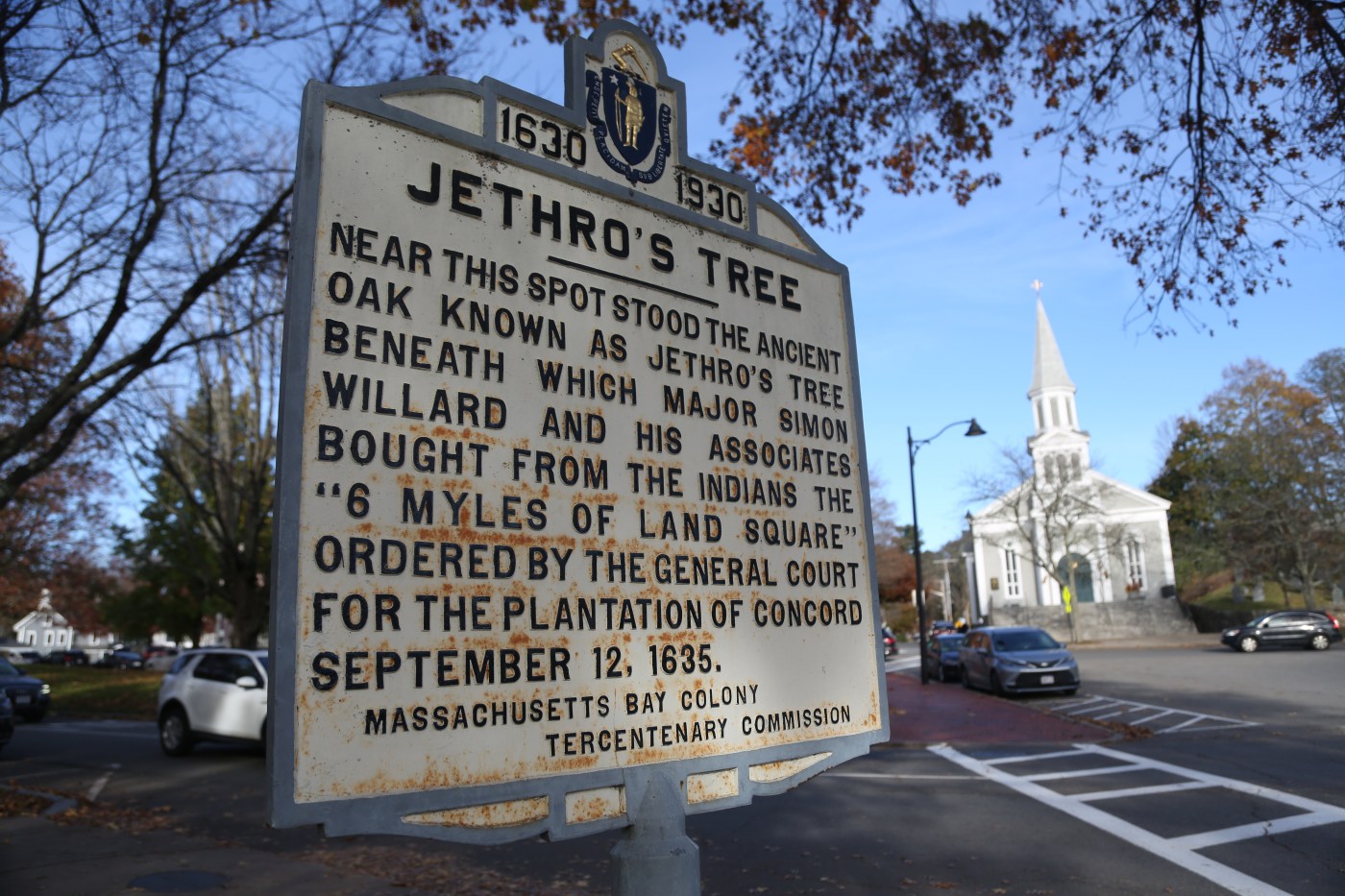
Massachusetts historic signs to be covered up in Concord due to their ‘offensive’ nature
Concord officials are covering up signs that have stood in town for nearly a century because they say the plaques have lost their appeal and are offensive to Indigenous people.
In 1930, the Massachusetts Bay Colony Tercentenary Commission distributed three markers to the town as part of an initiative recognizing the 300th anniversary of the original colony’s founding.
The Select Board this week voted to cover up the signs, a step that officials say was needed to create a more respectful community for all.
The signs convey what life was like close to four centuries ago when settlers founded the town in 1635. But officials say the markers don’t accurately represent the history nor the people who live and visit Concord today.
Officials had yet to cover the signs as of Wednesday. The markers highlight an oak tree that settlers bought from Indians for the town’s incorporation, the site of an Indian fishing weir and a slope where settlers built their first dwellings.
Select Board member Mark Howell, who sits on the town’s Diversity, Equity and Inclusion (DEI) Commission, said he feels some of the language on the signs are “slurs” and that the markers “represent an ongoing harm to people visiting our community.”
“We really do need to move with some haste to mitigate that and stop displaying the signs,” he said. “What should replace them, what the appropriate disposition of the signs is is a bigger question and needs some effort to do it, but right now, we should remove the harm.”
The board approved Howell’s motion for the town manager to cover the three signs “as soon as possible.” He also ordered the DEI Commission to conduct joint research with the Historical Commission on whether to remove the signs, replace them with “more accurate, relevant content,” or incorporating them into an educational exhibit.
In total, the Massachusetts Bay Colony Tercentenary Commission placed 275 markers in 95 cities and towns across the Commonwealth, but as time has gone on, many have been lost or fallen into a state of disrepair.
The state Department of Transportation restored 21 historic markers found in 10 cities and towns, all in central or western Massachusetts, in 2019. At the time, the agency identified roughly 174 of the original 275 signs.
Nancy Fresella-Lee, a member of the Historical Commission, said she has been researching the signs since January, including writing a 40-page report and attending forums.
She highlighted how at the top of each tercentenary marker is a depiction of the Massachusetts state seal, originally adopted in 1898. It features a disembodied arm of Plymouth colony military adviser Myles Standish holding a sword over the head of a Native American figure in a peaceful stance.
A commission working to redesign the state’s seal and motto since 2021 is slated to turn in final recommendations later this month.
“We really don’t need to investigate this anymore,” Fresella-Lee said of the markers. “We already know they are problematic. They are historical. Some people like them because they are historical objects, but they are not works of art and their intention is to convey educational information. They are no longer educational, and in fact, they are offensive.”
Joe Palumbo, co-chair of Concord’s DEI Commission, called out the Select Board for amending an initial agenda for Monday’s meeting, taking off a request to remove the tercentenary markers.
“We didn’t make this stuff up,” Palumbo said. “There are Indigenous scholars who have told us that these things need to come down.”
“I guarantee you if we had a sign in town today across the street that said ‘Enslavement taught many people good skills that they use later in life’ … we’d be taking it down by tomorrow morning,” Palumbo added.
The discussion popped up when Palumbo outlined his commission’s future goals.
Select Board Chair Henry Dane argued that no action should be taken until the board consults with Native American historians, but fellow members countered and voted for markers to be covered up at least for now.
“We are trying to deal with a more comprehensive and inclusive resolution to problems of this kind that will reflect a broad range of views,” Dane said, “and also be historically accurate, and to do it right the first time.”
The Concord Select Board has ordered tercentenary markers to be covered up due to their “offensive” nature. (Reba Saldanha/Boston Herald)
The Concord Select Board has ordered tercentenary markers to be covered up due to their “offensive” nature. (Reba Saldanha/Boston Herald)


